
Facebook introduced a new feature earlier this week aimed squarely at new parents, a subset of users who annoy the heck out of their friends by posting an unending stream of baby pictures. Billed as “a new way to organize photos of your child on Facebook,” the new scrapbook feature lets parents tag their little ones in photos wherever those pictures end up, like in your mobile uploads album, timeline photos, imported Instagram shots, or even your profile and cover pics. Once tagged, these baby photos get linked into a scrapbook of your kid, so you can easily view them all in one place.
On the face of it, this is a sweet idea, no doubt developed with plenty of heart. In fact, Facebook debuted the feature by telling the story of Dan Barak, a product manager at the company who loves photography and loves his family. I can identify with Barak — as a new dad myself, I share photos of my mini-me through Facebook, images that end up all over the place in my profile.
But I’m also very judicious about how I share photos of the kid. I mostly show off my boy through a shared iCloud photo album, so my special moments stay off social networks altogether. Sometimes I let my Facebook contacts have a peek into my (and more importantly, his) life by posting an image to friends on the social network. I (almost) never post pictures of him publicly. (Full disclosure: while writing this story I found one public photo, which has since been deleted.) And there is no digital sharing of naked baby photos, ever, under any circumstances. (Those are being saved to make him squirm in front of his prom date.)
I’ve taken this approach to my son’s digital life because, while he has begun to develop certain preferences over the past months (for instance, he loves the light blue blanket when it’s time to catch some sleep), he hasn’t yet told me how he’d like to handle his online identity. As it stands, the Children’s Online Privacy Protection Act says children under the age of 13 shouldn’t be on Facebook. Of course the act has more than a dozen clauses, and I’m too tired from tending a teething baby to comb through them, but the spirit of the law is that it’s designed to protect kids from having their data collected. And that data is getting richer and more intrusive every day. For example, pay attention the next time you upload a photo of some friends to Facebook — the site’s app can recognize their faces and tag them without any help from you, whatsoever.
It’s Facebook’s policy that children under 13 are not allowed to have an account. Of course, kids today have come up with an ingenious a way around this restriction: They lie about their age. Shocking, I know. And if that’s not troublesome enough for the world’s largest social network, here’s some more bad news: Some studies say teens are abandoning Facebook altogether, heading over to Snapchat, Twitter, and Instagram (which Facebook owns) instead.
My 16-year-old niece is one such teenager who prefers these other social networks, though she still has a Facebook account. When I asked her why she never posts to Facebook, she says that she only uses it to keep in touch with far-flung family members, like me. If she wants to post things that her friends will actually see, like, or respond to, she uses the other sites and services.
In other words, Facebook has a parent problem — teenagers don’t want to hang out where old farts are analyzing Claire’s hair on House of Cards. This new scrapbook feature is an obvious attempt to nip that issue in the cradle. The idea is that if parents start tagging their children now — even though, legally, those kids cannot have an account — they’ll want to join the conversation when they come of age. After all, who doesn’t want to hear about how cute they are?
Of course, Facebook hasn’t admitted this, but it’s obvious in the way it rolled out this new feature. They’re not suggesting users make scrapbooks for their pets, best friends, or spouses. They’re only interested in kids (though a Facebook spokesperson says you can make a scrapbook for your pup). In fact, you don’t even initiate the scrapbooking process through Facebook’s photos tab. Instead, you go to your profile, click on “About,” then “Family and Relationships,” so you can add a child to your profile.
At the moment, there’s no inkling of how you can convert these scrapbook-tagged photos into a user profile-tagged picture, but I wouldn’t be surprised if that changed over time. This is exactly how products develop online: you begin with a seemingly useful, innocuous feature, and once it takes root, it blossoms into a strategic part of your business.
Since my niece is closer in age to my son than I am, I asked her if I should make a scrapbook for him, figuring her carefree ways would tell me to be chill about Facebook’s overt grab for my child’s data. Specifically, I asked how she feels about her mom (my sister) having posted her awkward baby photos on the site.
“I still get mad at her when she posts pictures,” she says, asking rhetorically, “Why did you post that? I look terrible in that.” My sister’s answer was effectively, “Deal with it, kid — it’s my account.”
In a way, my sister is right. This is my Facebook account, my son, and most importantly, my life, and I want to share it with my friends. But that’s only today. Tomorrow and in the future, he will be his own person, and he should be the one to choose if he has an online identity. I have no right to choose that for him.
Update: A Facebook spokesperson says there aren’t any plans to “automatically transfer all the photos from a scrapbook into a 13 year old’s new account.”
“As part of this pilot, we’re exploring how to provide newcomers with the control and tools they need to choose whether photos in their scrapbooks become part of their presence on Facebook,” the spokesperson added. “Feedback from parents and teens will guide our approach.”
This Is What Your Facebook Profile Looked Like Over the Last 11 Years
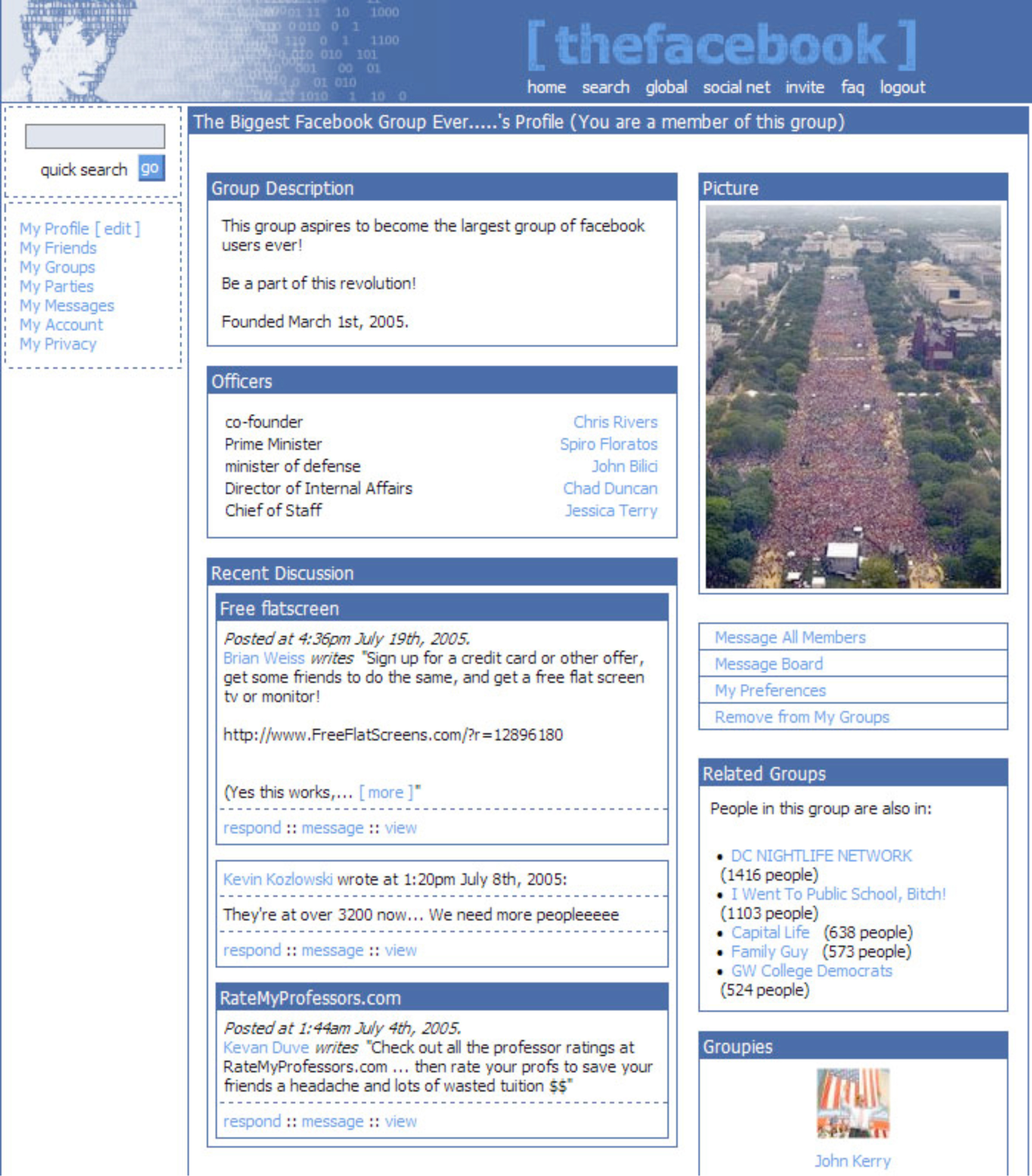
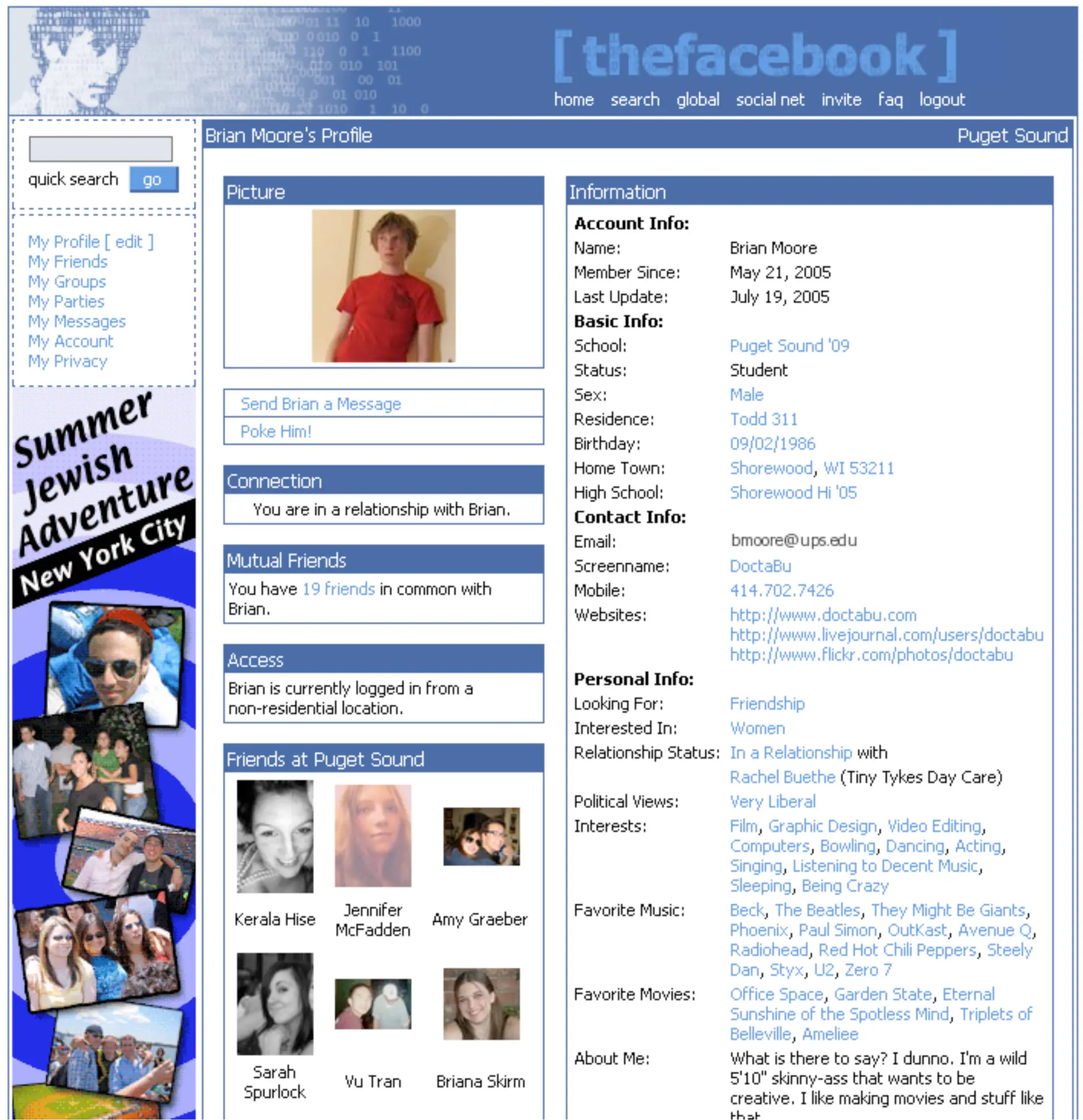
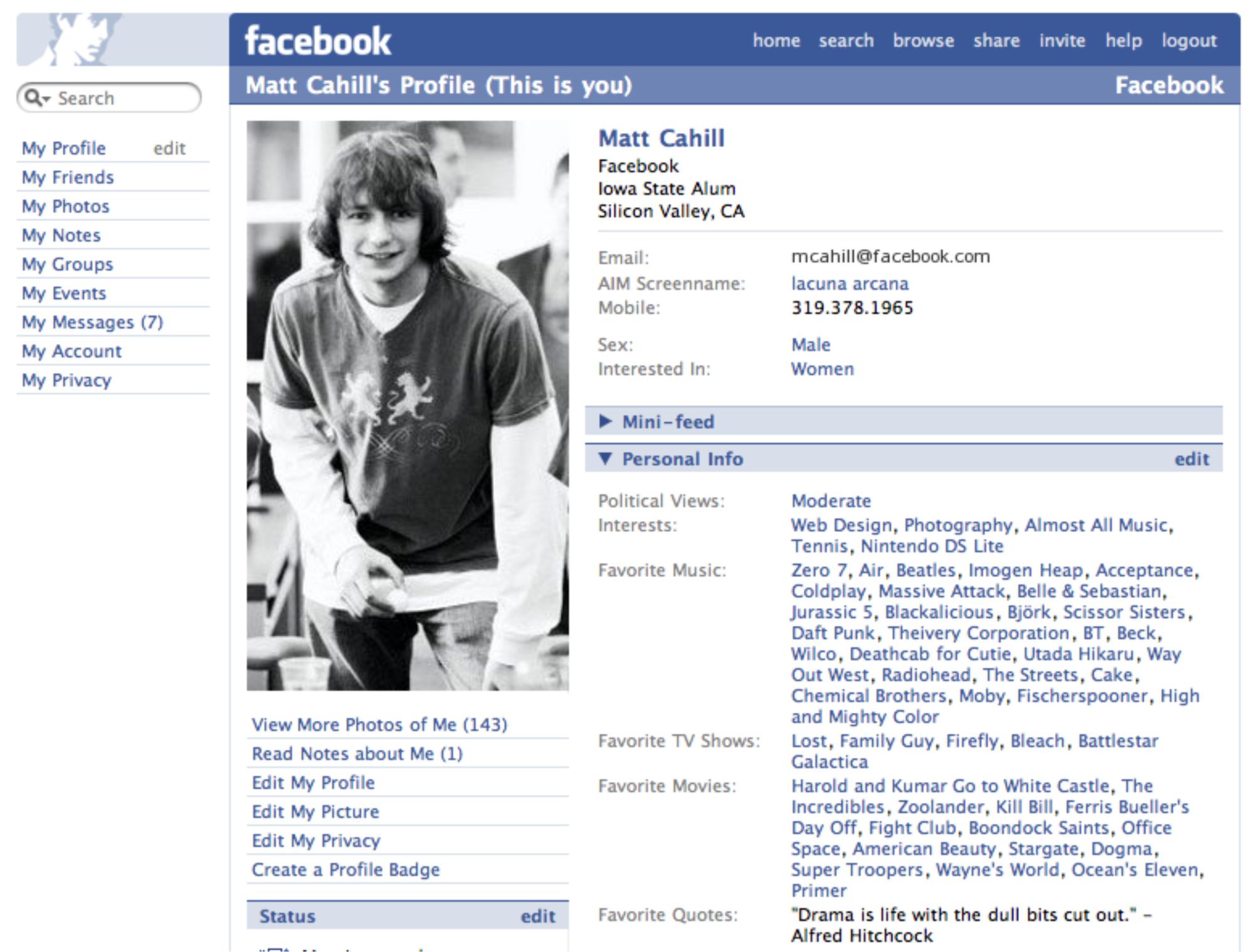
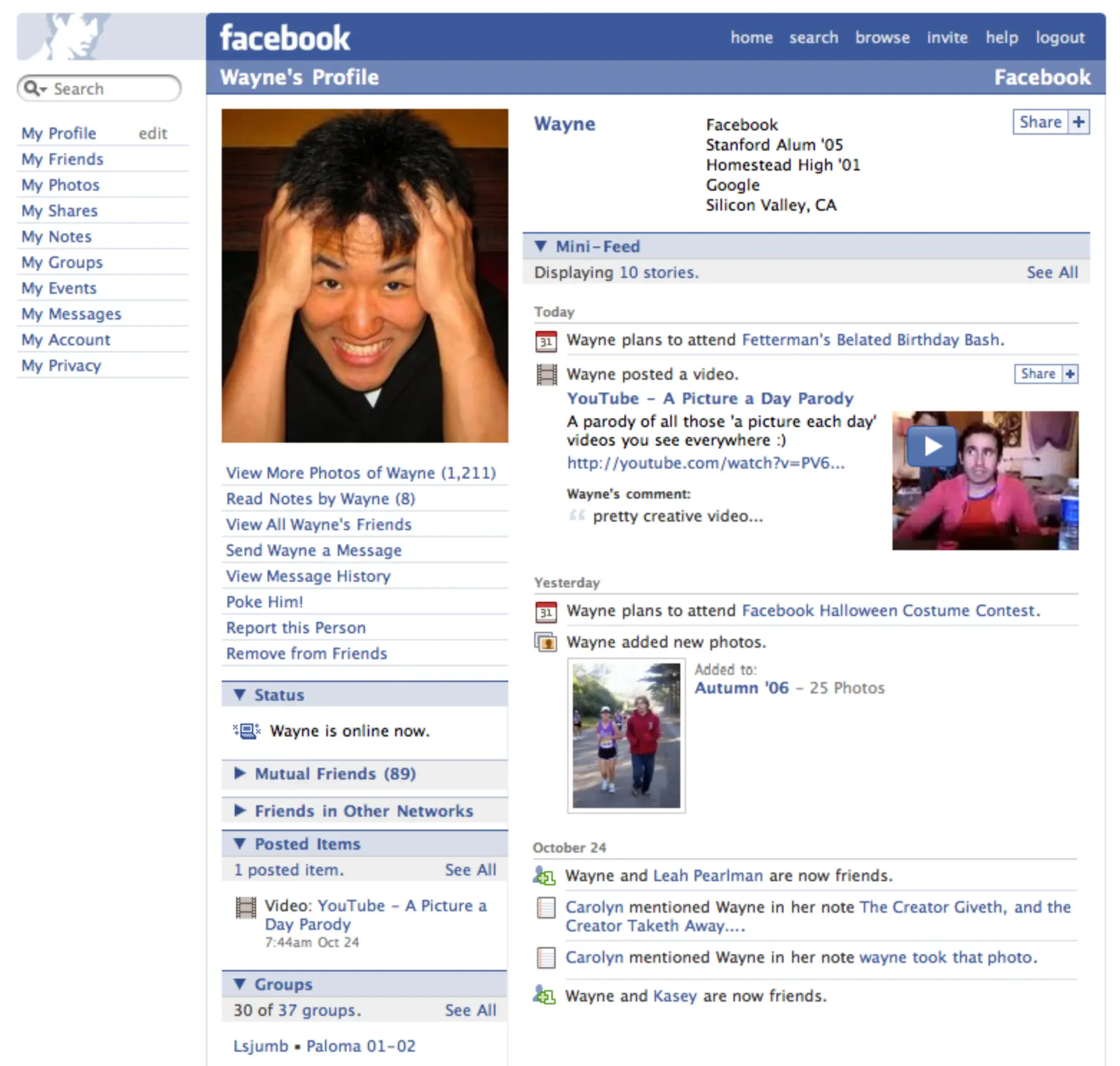
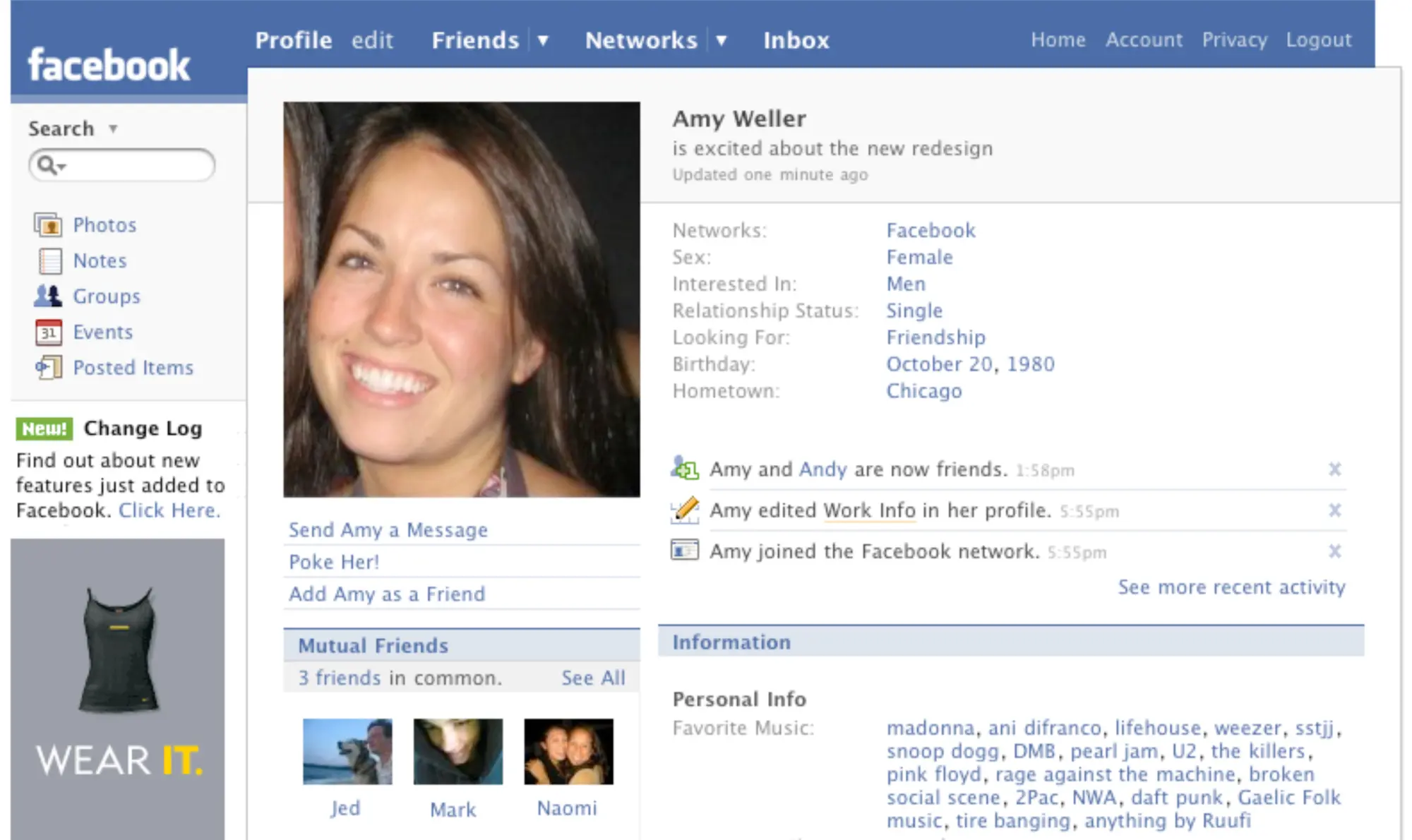
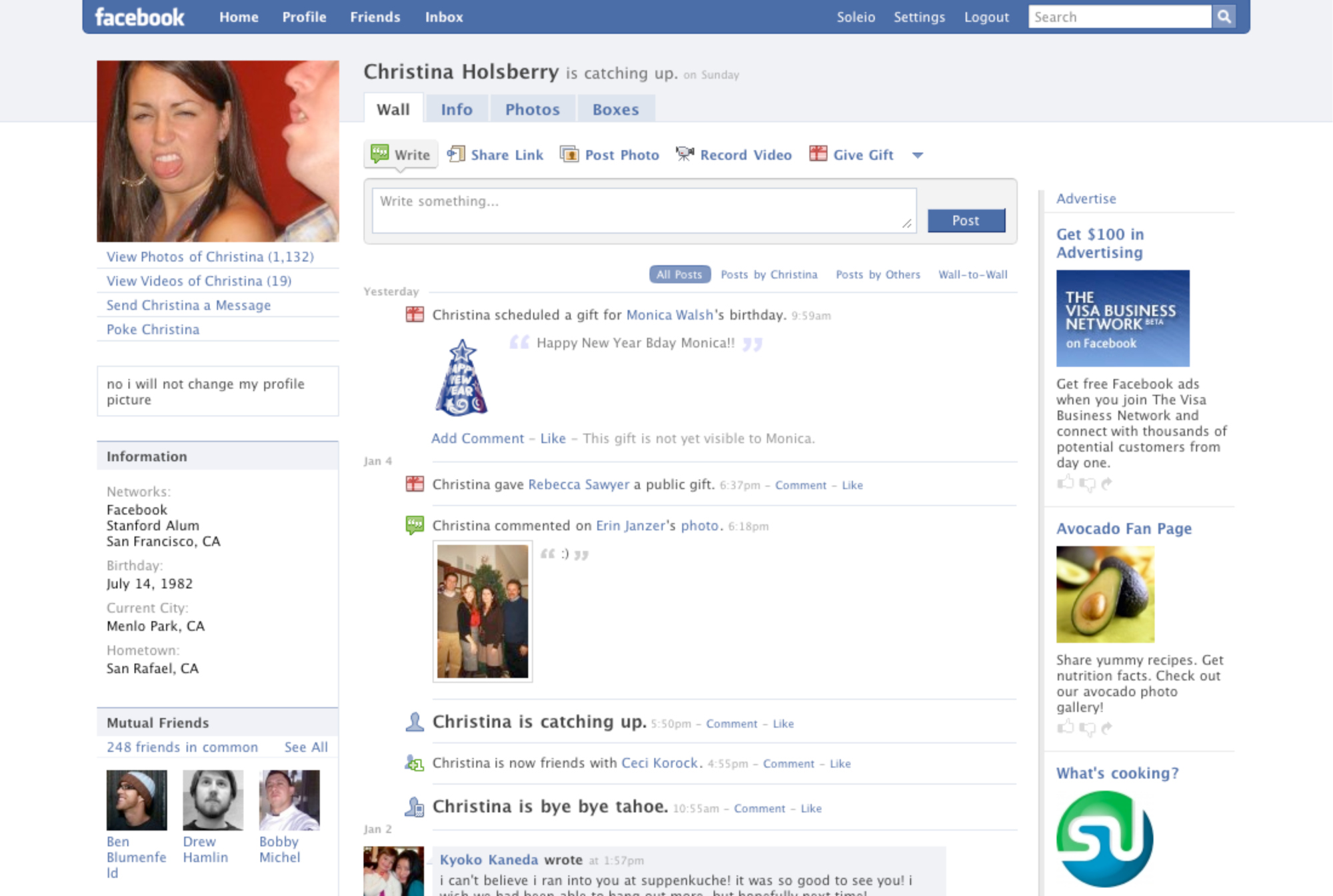
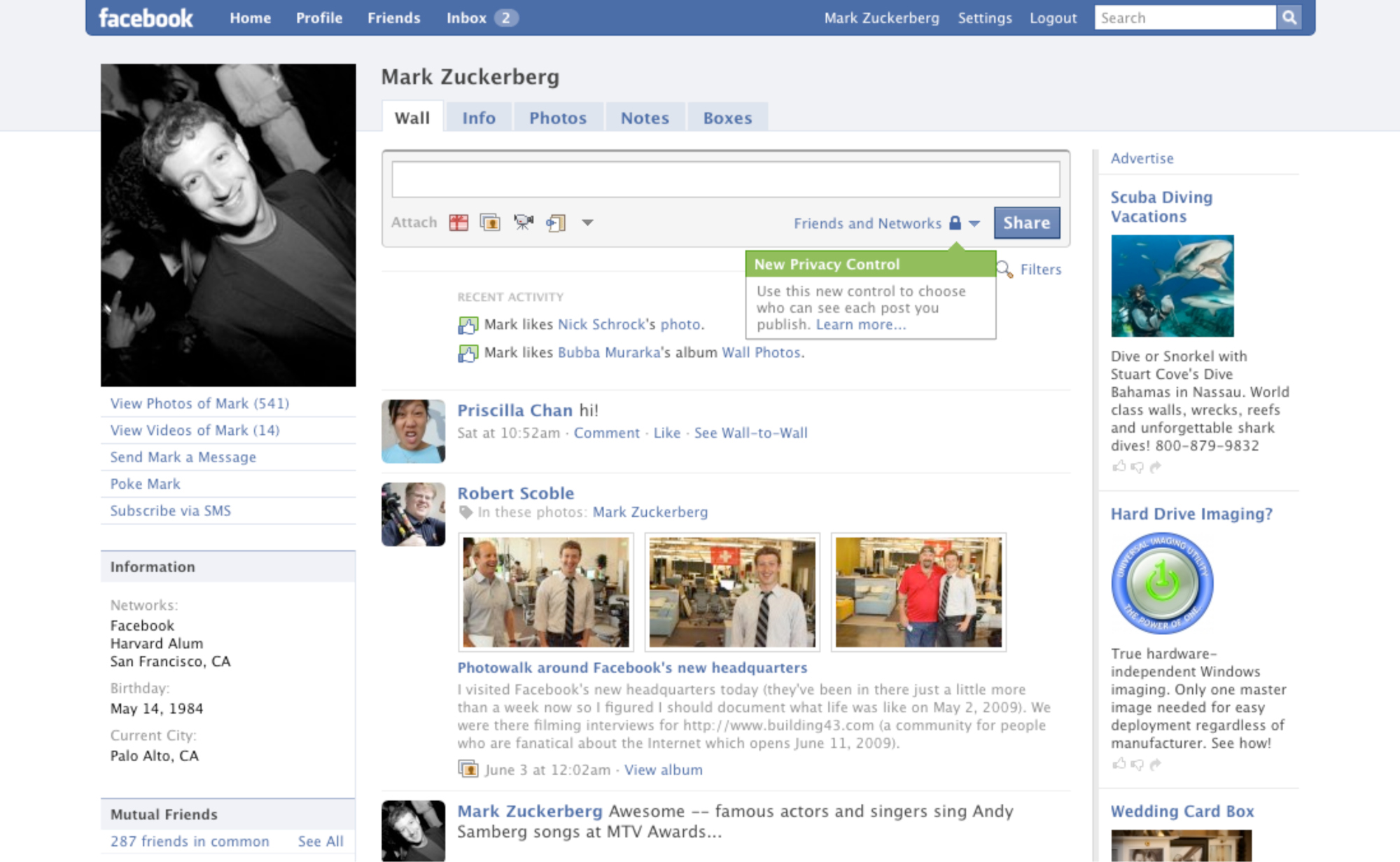
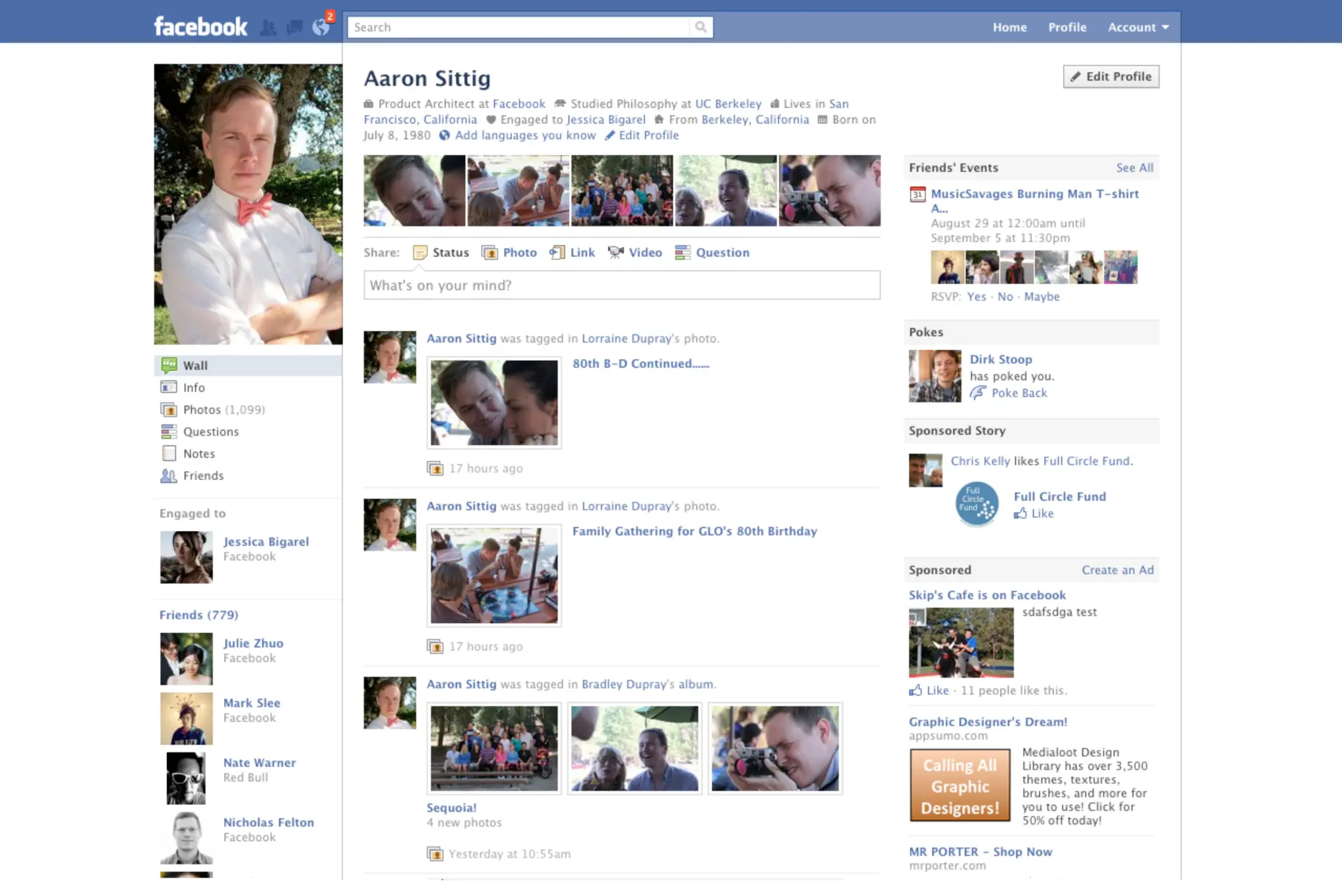

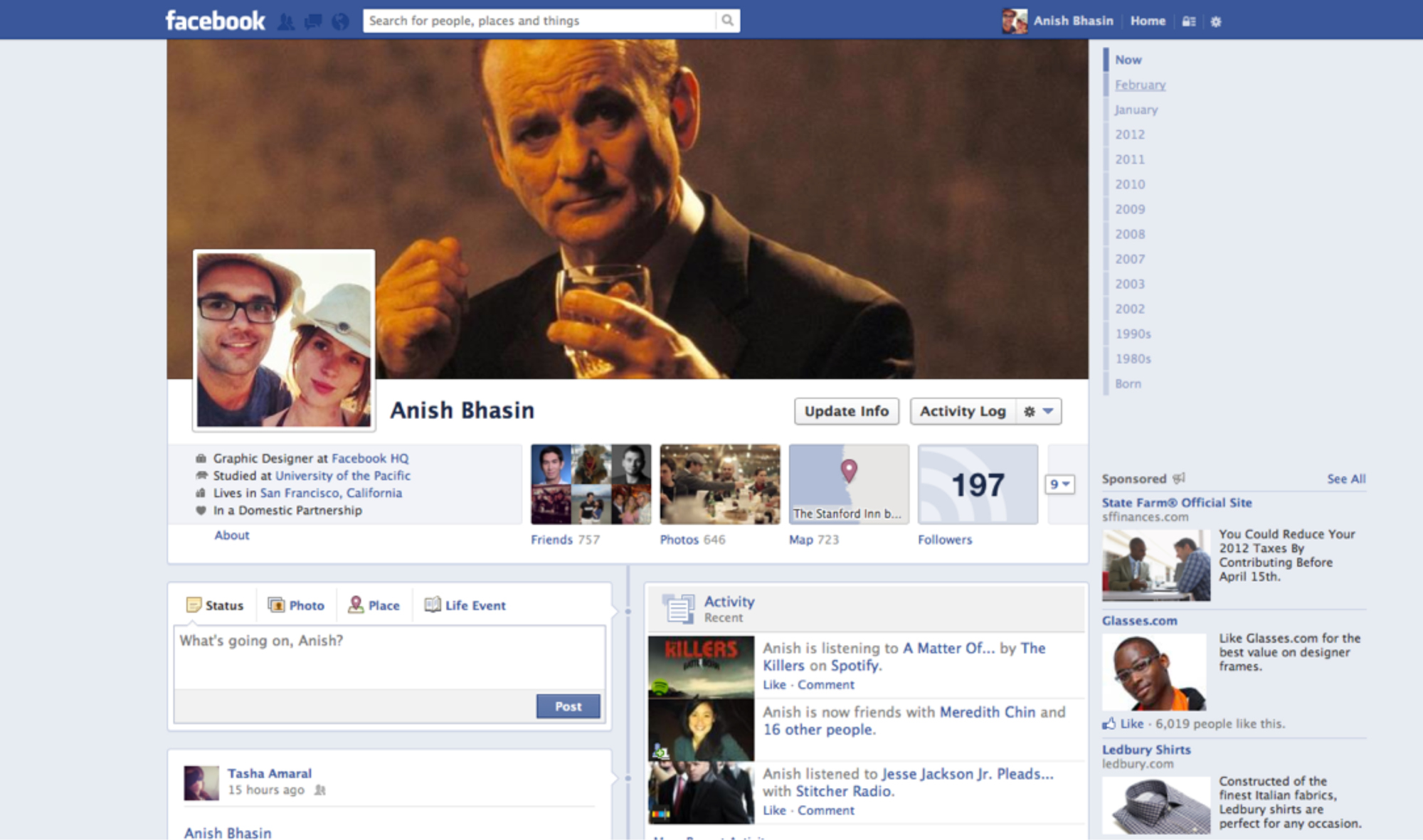
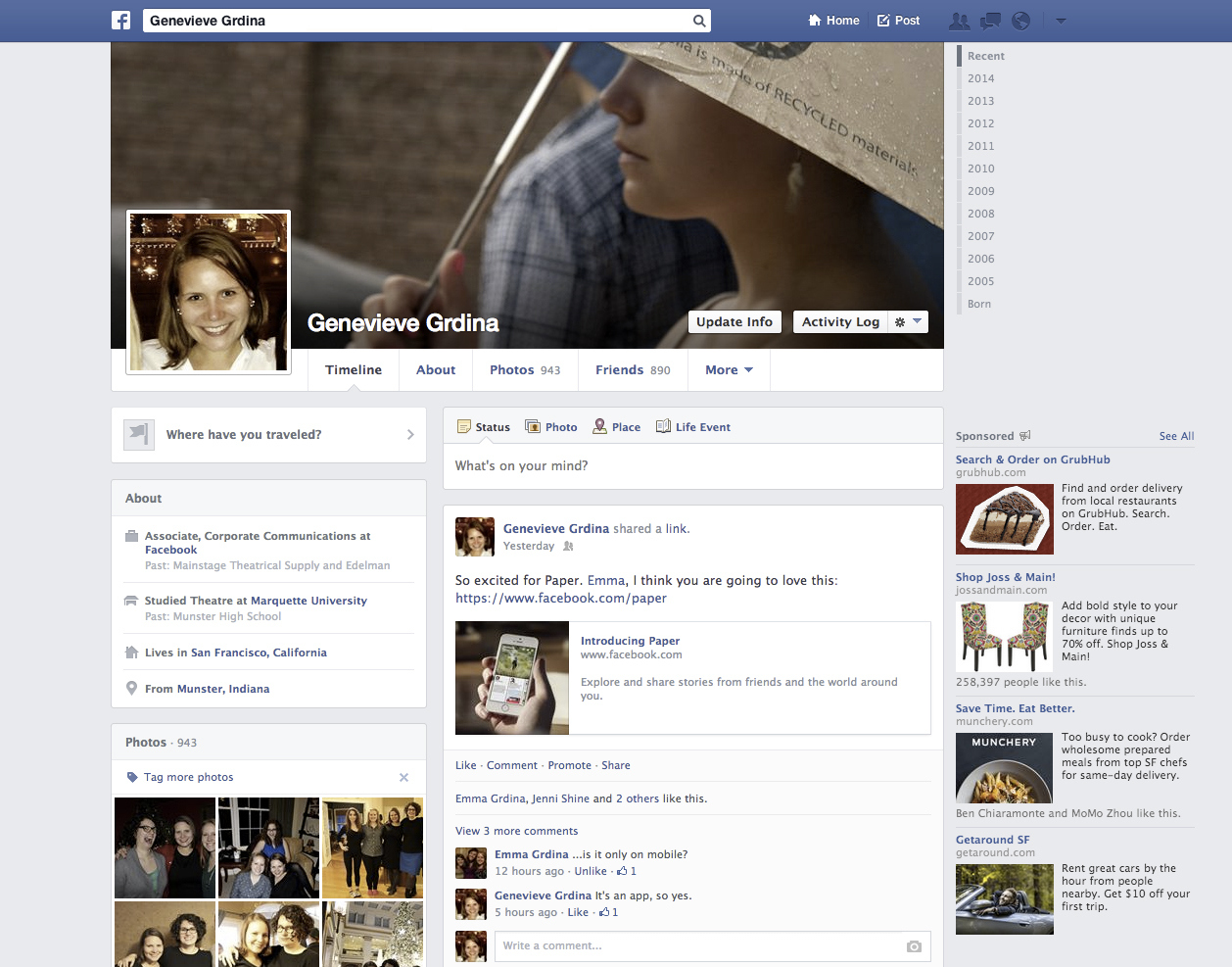

More Must-Reads from TIME
- Introducing the 2024 TIME100 Next
- The Reinvention of J.D. Vance
- How to Survive Election Season Without Losing Your Mind
- Welcome to the Golden Age of Scams
- Did the Pandemic Break Our Brains?
- The Many Lives of Jack Antonoff
- 33 True Crime Documentaries That Shaped the Genre
- Why Gut Health Issues Are More Common in Women
Contact us at letters@time.com